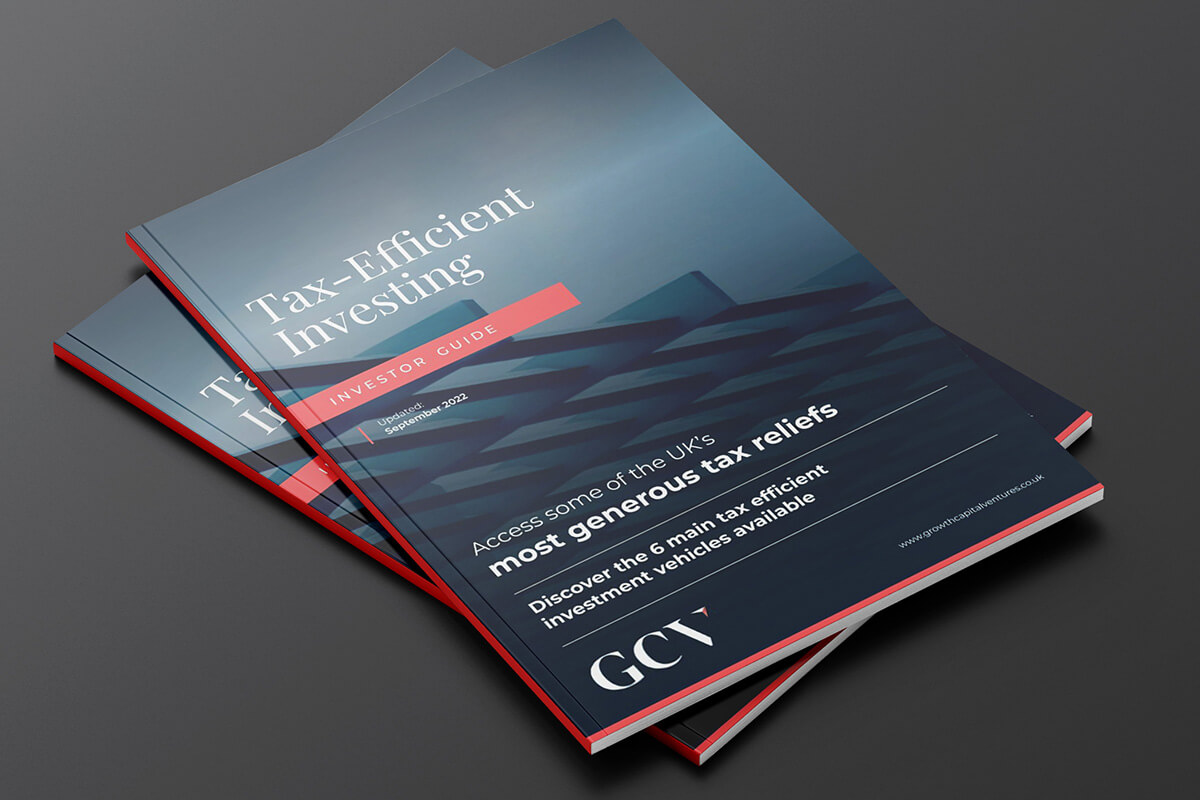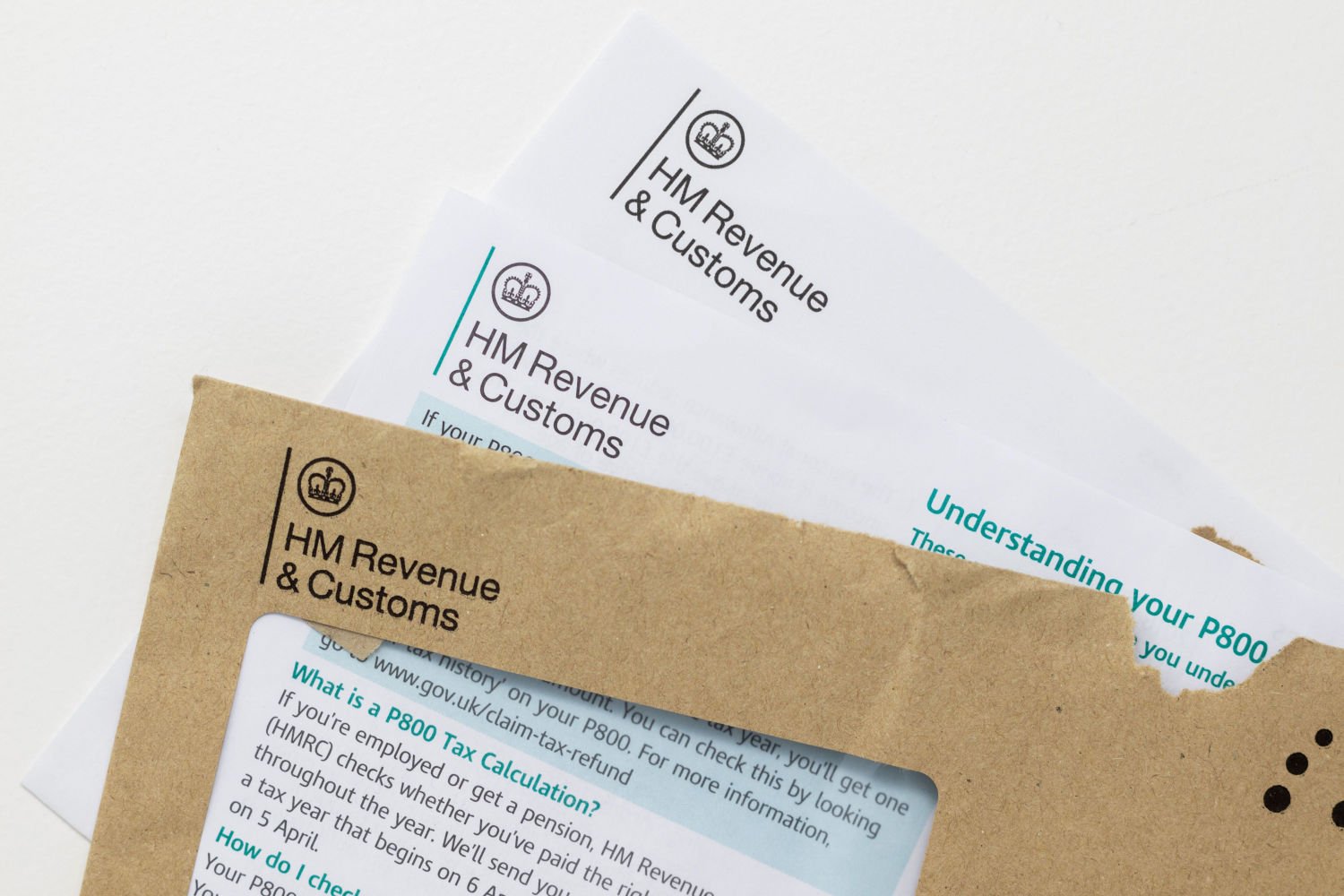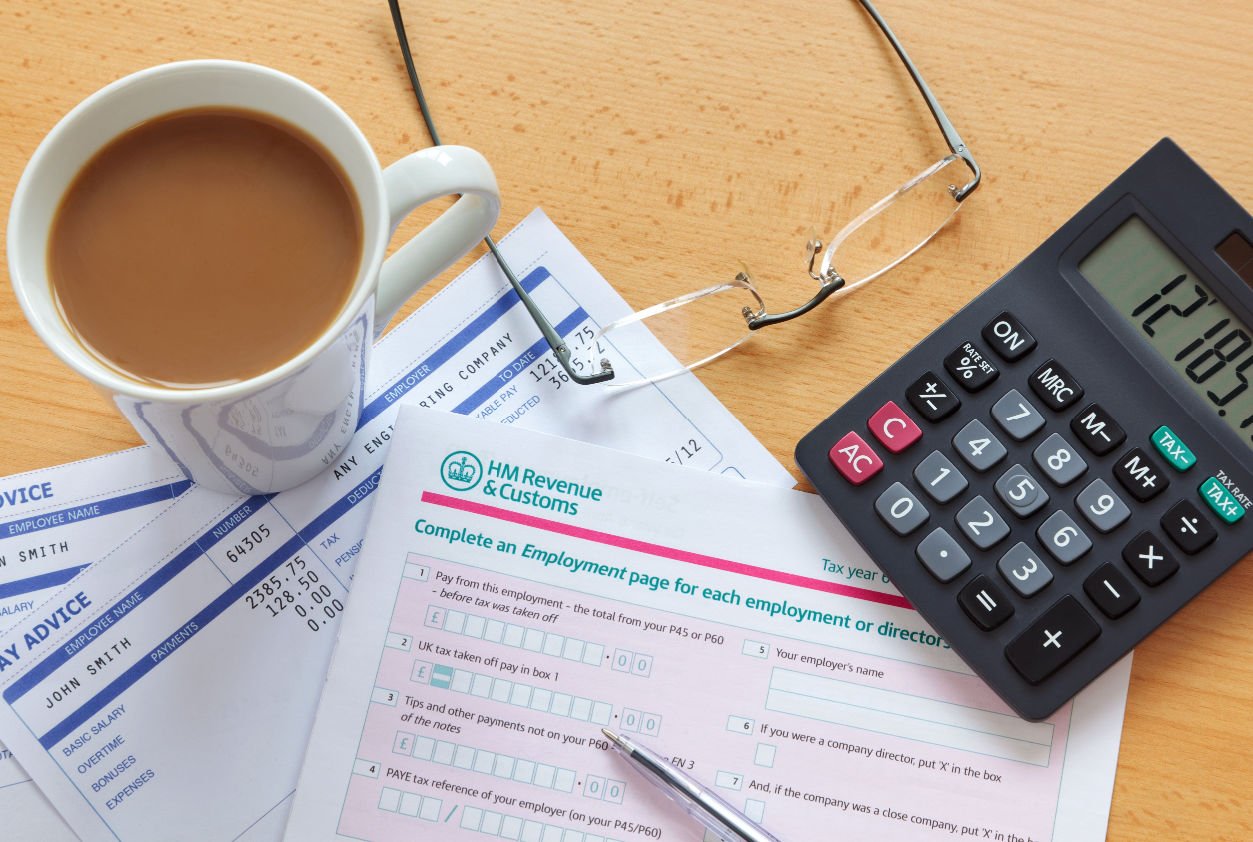How to reduce income tax in the UK using tax-efficient investments
Following the reduction of the additional 45% income tax threshold (from £150,000 to £125,140) on 6th April 2023, as well as seemingly endless income tax allowance freezes in combination with spiralling wage growth, it's clear to say that learning how to reduce income tax in the UK has never been in more demand.
Identifying the investment routes best angled to minimise income tax liabilities is likely to be a growing priority for many individuals – especially high earners. Effective tax planning, including the use of available deductions and credits, is becoming increasingly important as individuals look to lower their taxable income through various investment strategies and arrangements such as salary sacrifice schemes.
The following are six of the most popular routes for reducing income tax in the UK:
- Enterprise Investment Scheme (EIS)
- Seed Enterprise Investment Scheme (SEIS)
- Venture Capital Trusts (VCTs)
- Individual Savings Accounts (ISAs)
- Self-Invested Personal Pensions (SIPPs)
- Small Self-Administered Schemes (SSASs)
Before taxpayers assess which of these options may best assist in reducing their income tax liabilities, understanding the UK’s wider income tax landscape – including the intricacies of HMRC’s rules on deductions, tax credits, and personal allowance thresholds – could prove beneficial.
Is income tax revenue expected to rise in the UK?
With the reduced additional rate income tax threshold in the UK, more taxpayers than ever are now expected to fall into the highest band of income tax. This means that not only do individuals need to be aware of the impact of their taxable income but also the available reliefs such as pension contributions and salary sacrifice options that can reduce taxable income.
This could further contribute to the rapidly rising value of income tax receipts received by the UK government, which increased from £193.7 billion in the 2020/21 tax year to over £270 billion in the 2023/24 tax year – representing the largest year-on-year increases over the past 20 years.
What are the current income tax rates and thresholds?
In the UK, individuals are not taxed on the first £12,570 earned from their salary, bonuses, rental income, pensions, and other various income types. This is known as the Personal Allowance. Income exceeding the Personal Allowance is then subject to these income tax rates as of the 2024/25 tax year:
|
Bracket |
Rate |
|
|
Personal allowance |
£0 to £12,570 |
0% |
|
Basic |
£12,571 to £50,270 |
20% |
|
Higher |
£50,271 to £150,000 |
40% |
|
Additional |
Over £150,00 |
45% |
The applicable rates are segmented into bands, meaning that earnings between £12,570 and £50,270 are currently taxed at the basic rate of 20%, earnings between £50,270 and £125,140 at the higher rate of 40% – affecting many higher rate taxpayers – and anything above £125,140 is taxed at an additional rate of 45%.
For many individuals, especially those receiving child benefits, additional considerations such as the high-income child benefit charge may arise when taxable income exceeds a specified level. As inflation continues to exceed the Bank of England’s 2% target rate, wages follow a similar trajectory, prompting even more people to consider both traditional deductions and unconventional methods like salary sacrifice or enhanced pension contributions to manage their overall tax liabilities.
Ultimately, this further highlights the potential benefit to high earners of utilising the tax-efficient opportunities available to minimise the impact of reduced tax allowances and frozen bands while taking full advantage of both deductions and credits.
How to reduce your income tax bill: 6 main ways
A number of Government-introduced schemes exist in the UK that offer generous tax reliefs in return for investing into early-stage businesses, saving via an ISA, or contributing to your pension. These can be used to reduce taxable income and ultimately lower the overall tax burden. Here we explain how each scheme interacts with common tax planning strategies.
1. Enterprise Investment Scheme (EIS)
When looking for how to reduce income tax, the Enterprise Investment Scheme (EIS) is one of the best options. One of the three types of Venture Capital Schemes introduced by the UK Government, the EIS was introduced in 1994 with one core mission: to stimulate the growth of startups and scale-up businesses with the support of private investors.
Since then, the EIS has attracted more than £34 billion of private investment into over 42,000 small and medium enterprises (SMEs), largely due to the generous investor tax benefits – including valuable income tax relief in the form of credits – offered by the scheme.
One of the most attractive EIS tax reliefs is 30% income tax relief on the value of your investment (should shares be held for at least three years).
Example: If you invested the maximum annual investment limit into the EIS, which is currently £2 million (provided that any capital above the first £1 million is allocated to knowledge-intensive companies [KICs]), you could save up to £600,000 in income tax through the EIS, provided that your shares have been held for at least three years. This saving acts as a significant deduction from your overall tax liability.
As well as income tax relief, the EIS also offers capital gains tax (CGT) reliefs, inheritance tax exemption and loss relief, which – if unexpected circumstances occur – enables you to offset the value of a loss against your income tax or CGT bill. If you're wondering how to claim EIS income tax relief, it's fairly simple. Once the investment firm issues the EIS3 forms, usually up to 8 weeks after the investment round closes, you can claim the income tax relief.
If you're wondering how to claim EIS income tax relief, it's fairly simple. Once the investment firm issues the EIS3 forms, usually up to 8 weeks after the investment round closes, you can claim the income tax relief.
2. Seed Enterprise Investment Scheme (SEIS)
The Seed Enterprise Investment Scheme (SEIS) is another one of the UK Government’s Venture Capital Schemes. Introduced in 2012, the SEIS is based on the EIS, but has a more pronounced focus on targeting particularly early-stage startups.
Since its inception, the SEIS has attracted more than £1.7 billion of private investment into almost 20,000 UK startups, largely due to the generous investor tax benefits offered by the scheme.
One of the most attractive reliefs offered by the SEIS is 50% income tax relief on the value of your investment (should shares be held for at least three years), providing a viable strategy for those wondering how can I reduce my income tax.
Example: If you invested the maximum annual investment allowance into the SEIS, which is currently £200,000, you could save up to £100,000 in income tax, provided that your SEIS shares have been held for at least three years. As with other schemes, this tax saving works similarly to a credit against your overall tax liability, effectively reducing your taxable income.
As well as income tax relief, the SEIS also offers capital gains tax (CGT) reliefs, inheritance tax exemption and SEIS loss relief, which – if unexpected circumstances occur – enables you to offset the value of a loss against your income tax or CGT bill.
3. Venture Capital Trusts (VCTs)
Introduced in 1995, VCTs are the third and final of the UK Government’s Venture Capital Schemes. The primary aim of VCTs is to encourage investment into small private companies by providing tax incentives to individual investors who support these enterprises. Since being launched, VCTs have raised over £8.5 billion in the UK, providing crucial funding for innovation and entrepreneurship.
Unlike the EIS and SEIS, VCTs are listed investment vehicles that facilitate investment into a collection of eligible early-stage companies. As VCTs are overseen by a fund manager, additional fund management fees are often required from investors.
In return for investing into a VCT, investors can benefit from a range of tax reliefs, and whilst not as extensive or generous as those of the EIS and SEIS, these do include income tax relief of up to 30% on investments up to £200,000 per tax year. This relief not only serves as a valuable deduction but also reduces the overall taxable income of higher-rate taxpayers.
Example: If an individual investor were to invest the maximum annual investment limit of £200,000 into a VCT, they could potentially claim back up to £60,000 from their annual income tax bill. To qualify for this tax relief, investors must hold their VCT shares for at least five years.
In addition to 30% income tax relief, VCTs can offer investors tax-free dividends. This means that any dividends received from VCT shares are exempt from income tax, which can make VCTs an attractive option for income-seeking investors, especially following the dividend tax allowance being halved to just £500.
VCT shares are also exempt from capital gains tax upon their disposal providing they have been held for at least five years, and are exempt from inheritance tax providing they have been held for two years.
4. Individual Savings Accounts (ISAs)
The main aim of the ISAs is to encourage individuals in the UK to save and invest capital by providing them with a tax-efficient savings vehicle to help reduce their tax bill, ensuring that both deductions and credits work in their favour.
ISAs were introduced in the UK in April 1999, replacing the previous Personal Equity Plans (PEPs) and Tax-Exempt Special Savings Accounts (TESSAs). Since then, ISAs have become increasingly popular as a method for individuals to save and invest tax-efficiently, with data from HMRC revealing that over £735 billion has been invested in ISAs (as of April 2021).
Several different types of ISAs exist, including Cash ISAs, Stocks and Shares ISAs, Innovative Finance ISAs and Lifetime ISAs. Each type of ISA has its own set of rules and limits, but they all share the common feature of providing tax-efficient savings and investment options. For many, using an ISA is also a straightforward method of tax planning as no income tax or capital gains tax is charged on any income generated.
Investing through an ISA enables any income, capital gains and dividends generated to be exempt from tax. This means that any interest earned on Cash ISAs or dividends earned via Stocks and Shares ISAs – for example – are not subject to income tax or dividend tax.
As of the 2024/25 tax year, an individual has a maximum annual ISA limit of £20,000, which can be solely allocated into one type of ISA or spread across multiple ISA accounts.
5. Self-Invested Personal Pension (SIPP)
A SIPP is a type of personal pension scheme available in the UK that provides individuals with greater control and flexibility over their pension investments, with the benefit of a number of tax advantages. By making pension contributions through a SIPP, investors can often benefit from both tax relief at their marginal rate and additional deductions from their taxable income.
Unlike traditional pension plans, which typically offer a limited range of investment options, a SIPP allows you to invest in a wide range of assets, including stocks, shares, exchange-traded funds (ETFs), bonds, and commercial property.
With a SIPP, you can select your own investments and manage your portfolio, either directly or with the help of a financial adviser. This provides you with more control over your retirement savings and allows you to tailor your investments to your individual needs and risk tolerance.
A SIPP offers income tax relief at your marginal rate, meaning that an additional rate taxpayer (currently subject to 45% income tax) can contribute £20,000 to a SIPP in the 2024/25 tax year and subsequently receive £11,250 in income tax relief – making it one of the best ways to reduce income tax.
Furthermore, the investments within the SIPP can grow tax-free, so any income or capital gains generated by the investments are not subject to income tax or capital gains tax, and when the individual who owns the SIPP reaches retirement age, they can take up to 25% of their SIPP as a tax-free lump sum. Utilizing salary sacrifice is another popular strategy alongside pension contributions to lower overall taxable income.
When the individual starts taking income from their SIPP, it is subject to income tax at their marginal rate. However, they can choose how much income they take and when they take it, which can help to manage their tax liability.
6. Small Self-Administered Schemes (SSASs)
A Small Self-Administered Scheme (SSAS) is a type of UK-based occupational pension scheme that allows a company or a group of individuals to set up a private pension plan for their employees or members and offers the benefit of a number of tax advantages. Often, SSASs provide flexibility similar to salary sacrifice measures for pension contributions, contributing to reduced taxable income.
A SSAS can have up to 11 members, and all members must be trustees of the scheme. This means that each member has a say in the investment decisions made by the SSAS and is responsible for ensuring that the scheme is managed in accordance with the legal requirements.
SSASs are typically set up by small businesses or groups of individuals who want to have more control over their pension investments and have the expertise to manage them. They are also often used by company directors who want to use their pension funds to invest in their own business ventures.
Via a SSAS, members can receive income tax relief at their marginal rate on contributions, meaning that additional rate taxpayers can contribute £20,000, for example, and receive £9,000 (45%) tax relief (first 205, then 25% of the gross) – effectively reducing their income tax.
Additionally, the investments held within a SSAS can grow free from income tax and capital gains tax. This means that any income or gains generated within the scheme do not attract any tax liability.
Furthermore, members of a SSAS can take up to 25% of their pension fund as a tax-free lump sum when they reach retirement age, and they can choose to take a flexible income from their pension fund, known as drawdown. The income received is subject to income tax, but members have the flexibility to vary the amount they receive each year, which can help to manage their tax liabilities.
Reducing your UK income tax bill with tax-efficient investments
Overall, with the recent reduction of the additional 45% income tax threshold, it’s important for high earners in the UK to consider the ability of tax-efficient investments to minimise the impact of reduced tax allowances and frozen bands. By taking advantage of deductions, credits, and strategic approaches—including pension contributions, salary sacrifice, and careful consideration of taxable income—investors can significantly ease their personal tax burdens.
Various government-introduced schemes offer generous tax reliefs for investing in early-stage businesses or contributing to pensions, such as the EIS, SEIS, VCTs, ISAs, SIPPs and SSASs. These can be used to varying degrees, depending on tax goals, growth objectives, levels of disposable income and investment experience.
Whilst these schemes can offer significant tax reliefs and can considerably reduce your income tax bill, it’s important to note that the tax benefits of these schemes depend on individual circumstances, and it is recommended that individuals seek tailored financial advice and conduct thorough due diligence before making any investment decisions. Such planning is especially important for those who also need to consider child benefit implications and the high-income child benefit charge.
Where additional financial advice is always advised, the GCV guide to tax-efficient investing can assist in providing a firm knowledge base of some of the most tax-efficient investment tools available to UK investors.
Free Investor Guide
An investor's guide to tax-efficient investing
Providing an insight into the tax-efficient investment options accessible to UK investors, our free guide is a useful introduction to the schemes and wrappers that can help you maximise returns and savings while minimising risk when investing in early-stage companies.

%20(3)%20(2).jpg)









